



The Culture of Sport
Positivity is infectious in sport and can reap many benefits for teams and individuals. That is why Melbourne Girls Grammar’s Artemis team works hard to create and nurture a positive culture throughout all its programs. Sean Hardeman talks to Sally Bailey, Executive Director, Artemis Programs, Anthony Bruhn, Head of Sport and Coaching, Ruby Jones and Chloe Waddell, 2022 Sport Co-Captains about how they nurture this throughout all levels.
Teachers, coaches, and students all have a role to play in fostering the culture. Sally says the conversation around developing a positive culture within the School’s Sport, Fitness and Physical Activity programs has intentionally come into sharper focus over the past four years ago. It began with forming a student leadership group that included Year 12 Sports Captains, and Years 9, 10 and 11 Sport Representatives as well as the Captains and Vice Captains of sport teams – swimming, athletics, netball, rowing, and snowsports. The student leadership then meets with the Artemis team to discuss the culture and ideas for improving it so the Artemis team can adjust programs to ensure the culture is maximised. They talk about their surroundings and how they are working together to ensure sport and physical activity are things everyone wants to do. Sally says this is important for the student leaders as they want every Grammarian to get involved in some form of physical activity. She adds that it is clear the student leaders want to instil an inclusive environment, whether it is in teams, sport programs, or in spaces like the fitness hub.

The way a positive sport culture looks varies from person to person, whether that be Sally, Head of Sport and Coaching Anthony Bruhn or 2022 Sport Co-Captains Ruby Jones and Chloe Waddell. For Anthony, it is the interplay between programs that he looks for in a positive sport culture. He says the Sport, Physical Education and Fit For You programs complement each other, which helps the team identify tangible evidence of the culture. Ruby defines a positive sport culture as one that brings enthusiasm about being part of something that is more than yourself. She says sport is the vehicle that facilitates it and keeps everyone coming back. Chloe says sport is a group culture; it helps build positive attitudes towards physical activity.
The way a positive sport culture looks varies from person to person, whether that be Sally, Head of Sport and Coaching Anthony Bruhn or 2022 Sport Co-Captains Ruby Jones and Chloe Waddell. For Anthony, it is the interplay between programs that he looks for in a positive sport culture. He says the Sport, Physical Education and Fit For You programs complement each other, which helps the team identify tangible evidence of the culture. Ruby defines a positive sport culture as one that brings enthusiasm about being part of something that is more than yourself. She says sport is the vehicle that facilitates it and keeps everyone coming back. Chloe says sport is a group culture; it helps build positive attitudes towards physical activity.

Anthony highlights that the main the goal of the MGGS sport culture is to create lifelong athletes, whether that be professional or recreational. He adds that Artemis’s aim is for every Grammarian to be active, every day and every one of our graduates to leave our red brick wall with a lifelong engagement in sport or physical activity. The Artemis team’s role is to try and frame this across all programs. To realise this vision the team tasks a holistic, multi-faceted approach that is consistently experienced across all programs. The Heads of programs, coaches and teachers are driving that culture by encouraging Grammarians to participate from an early age and ensuring they remain involved in sport or physical activity throughout their time at MGGS. Sally explains they do this by mentoring not only the students but also the career and casual coaches that work with them. She knows that having quality coaches assists in driving a positive culture and really helps our Grammarians develop consistent routines. The coaches model patterns of behaviours that demonstrate a sense of engagement and purpose. These behaviours make it clear to Grammarians why they are there and why they should be engaging.
Anthony highlights that the main the goal of the MGGS sport culture is to create lifelong athletes, whether that be professional or recreational. He adds that Artemis’s aim is for every Grammarian to be active, every day and every one of our graduates to leave our red brick wall with a lifelong engagement in sport or physical activity. The Artemis team’s role is to try and frame this across all programs. To realise this vision the team tasks a holistic, multi-faceted approach that is consistently experienced across all programs. The Heads of programs, coaches and teachers are driving that culture by encouraging Grammarians to participate from an early age and ensuring they remain involved in sport or physical activity throughout their time at MGGS. Sally explains they do this by mentoring not only the students but also the career and casual coaches that work with them. She knows that having quality coaches assists in driving a positive culture and really helps our Grammarians develop consistent routines. The coaches model patterns of behaviours that demonstrate a sense of engagement and purpose. These behaviours make it clear to Grammarians why they are there and why they should be engaging.
Anthony highlights that the main the goal of the MGGS sport culture is to create lifelong athletes, whether that be professional or recreational. He adds that Artemis’s aim is for every Grammarian to be active, every day and every one of our graduates to leave our red brick wall with a lifelong engagement in sport or physical activity. The Artemis team’s role is to try and frame this across all programs. To realise this vision the team tasks a holistic, multi-faceted approach that is consistently experienced across all programs. The Heads of programs, coaches and teachers are driving that culture by encouraging Grammarians to participate from an early age and ensuring they remain involved in sport or physical activity throughout their time at MGGS. Sally explains they do this by mentoring not only the students but also the career and casual coaches that work with them. She knows that having quality coaches assists in driving a positive culture and really helps our Grammarians develop consistent routines. The coaches model patterns of behaviours that demonstrate a sense of engagement and purpose. These behaviours make it clear to Grammarians why they are there and why they should be engaging.
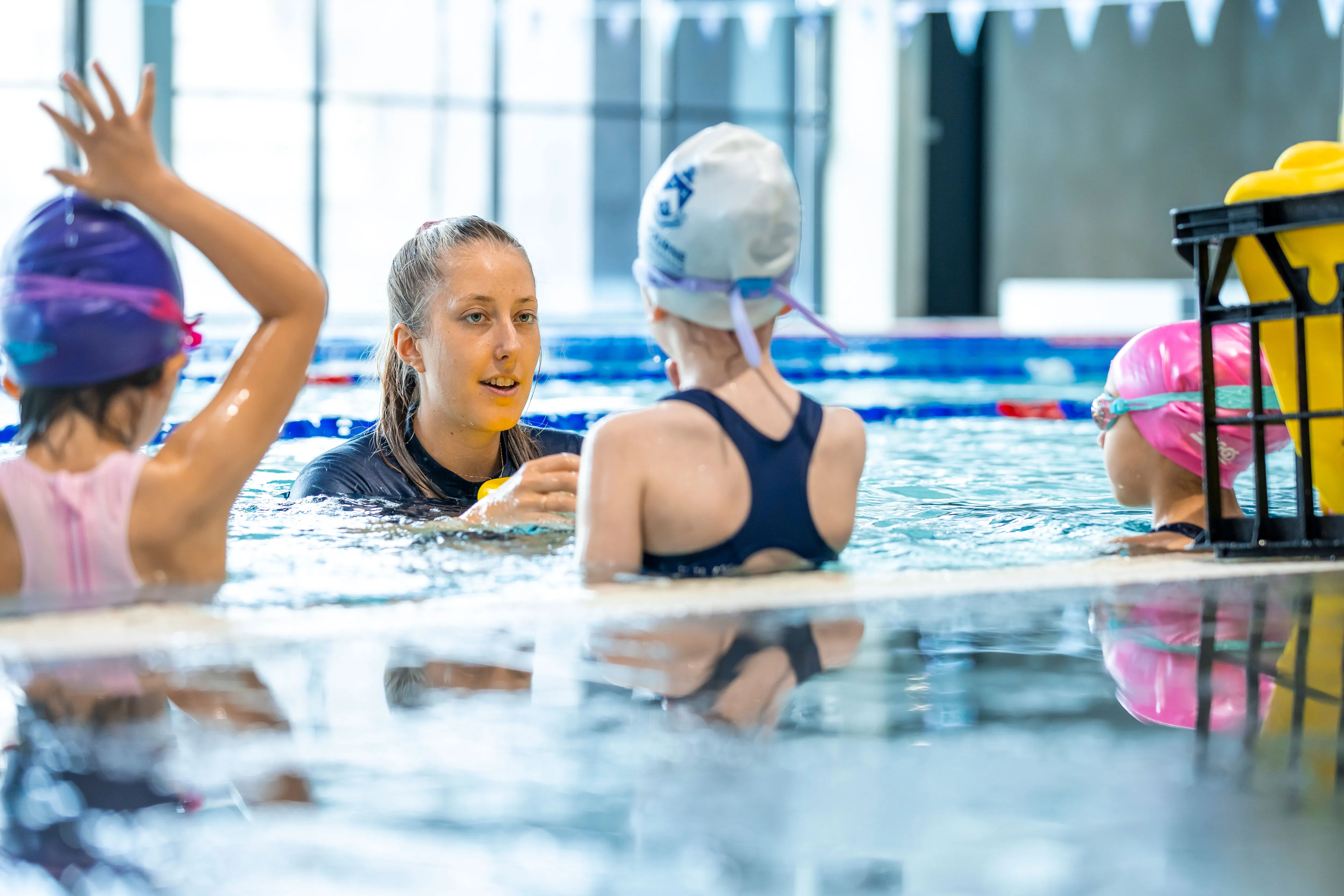

Artemis offers a place for our Grammarians to learn valuable life skills like swimming.



Artemis offers a place for our Grammarians to learn valuable life skills like swimming.


Senior Grammarians play an important role in leading their younger peers.


Encouragement is a key feature of Artemis's culture.


Students utulise the running tracks in their neighbourhood.


Artemis offers a place for our Grammarians to learn valuable life skills like swimming.


Senior Grammarians play an important role in leading their younger peers.


Encouragement is a key feature of Artemis's culture.


Students utulise the running tracks in their neighbourhood.
Sally wants the students to also become role models by being active, and then lead their children to be active and healthy too; it is about creating a positive cycle. Research from the UK, Canada and Australia has universally found that active parents are more likely to have active children. Artemis’ objective is to raise a generation of girls and young women who will be positive role models for their own families and children. Anthony agrees, that when past Grammarians interact with their younger counterparts throughout the programs it helps to drive and strengthen the culture of maintaining an active and healthy lifestyle. He adds that there are pathways for all Grammarians to contribute, whether that be as leaders or participants. Chloe explains that the role she and Ruby play as Sport Captains is to nurture the culture and role model positive attitudes and actions. She believes a positive culture is important to making the transition into an active lifestyle easier.
Sally wants the students to also become role models by being active, and then lead their children to be active and healthy too; it is about creating a positive cycle. Research from the UK, Canada and Australia has universally found that active parents are more likely to have active children. Artemis’ objective is to raise a generation of girls and young women who will be positive role models for their own families and children. Anthony agrees, that when past Grammarians interact with their younger counterparts throughout the programs it helps to drive and strengthen the culture of maintaining an active and healthy lifestyle. He adds that there are pathways for all Grammarians to contribute, whether that be as leaders or participants. Chloe explains that the role she and Ruby play as Sport Captains is to nurture the culture and role model positive attitudes and actions. She believes a positive culture is important to making the transition into an active lifestyle easier.
Sally wants the students to also become role models by being active, and then lead their children to be active and healthy too; it is about creating a positive cycle. Research from the UK, Canada and Australia has universally found that active parents are more likely to have active children. Artemis’ objective is to raise a generation of girls and young women who will be positive role models for their own families and children. Anthony agrees, that when past Grammarians interact with their younger counterparts throughout the programs it helps to drive and strengthen the culture of maintaining an active and healthy lifestyle. He adds that there are pathways for all Grammarians to contribute, whether that be as leaders or participants. Chloe explains that the role she and Ruby play as Sport Captains is to nurture the culture and role model positive attitudes and actions. She believes a positive culture is important to making the transition into an active lifestyle easier.

Chloe says sport is great in itself, but sport within a positive culture is incredible. She adds it makes sport and physical activity “so much better and so much more enjoyable. It makes you want to go back and do it again and again, to the point it becomes addictive, which is awesome.” Ruby believes the positive sport culture at MGGS also assists Grammarians to feel welcome, to make friends, enjoy physical activity and feel engaged. Sally agrees, saying a person’s attitude to sport and physical activity is often shaped by their experiences as a child or adolescent. The number one reason children play sport is to have fun. What makes sport fun for kids is coaches who care and build strong and positive relationships with, opportunities to try, being challenged, learning new skills, getting play time, being part of a supportive and positive team, and being active. That’s why throughout the Artemis programs, her number one priority is to ensure our Grammarians have good experiences to set them up for a lifetime of engagement in sport and physical activity.
Chloe says sport is great in itself, but sport within a positive culture is incredible. She adds it makes sport and physical activity “so much better and so much more enjoyable. It makes you want to go back and do it again and again, to the point it becomes addictive, which is awesome.” Ruby believes the positive sport culture at MGGS also assists Grammarians to feel welcome, to make friends, enjoy physical activity and feel engaged. Sally agrees, saying a person’s attitude to sport and physical activity is often shaped by their experiences as a child or adolescent. The number one reason children play sport is to have fun. What makes sport fun for kids is coaches who care and build strong and positive relationships with, opportunities to try, being challenged, learning new skills, getting play time, being part of a supportive and positive team, and being active. That’s why throughout the Artemis programs, her number one priority is to ensure our Grammarians have good experiences to set them up for a lifetime of engagement in sport and physical activity.
Chloe says sport is great in itself, but sport within a positive culture is incredible. She adds it makes sport and physical activity “so much better and so much more enjoyable. It makes you want to go back and do it again and again, to the point it becomes addictive, which is awesome.” Ruby believes the positive sport culture at MGGS also assists Grammarians to feel welcome, to make friends, enjoy physical activity and feel engaged. Sally agrees, saying a person’s attitude to sport and physical activity is often shaped by their experiences as a child or adolescent. The number one reason children play sport is to have fun. What makes sport fun for kids is coaches who care and build strong and positive relationships with, opportunities to try, being challenged, learning new skills, getting play time, being part of a supportive and positive team, and being active. That’s why throughout the Artemis programs, her number one priority is to ensure our Grammarians have good experiences to set them up for a lifetime of engagement in sport and physical activity.








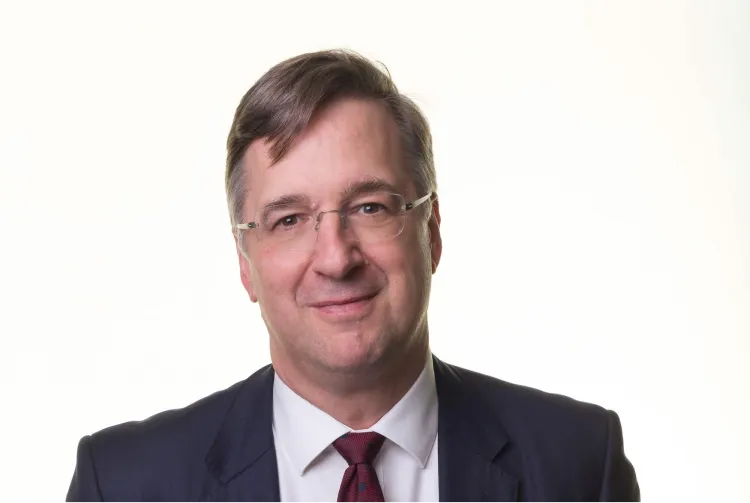
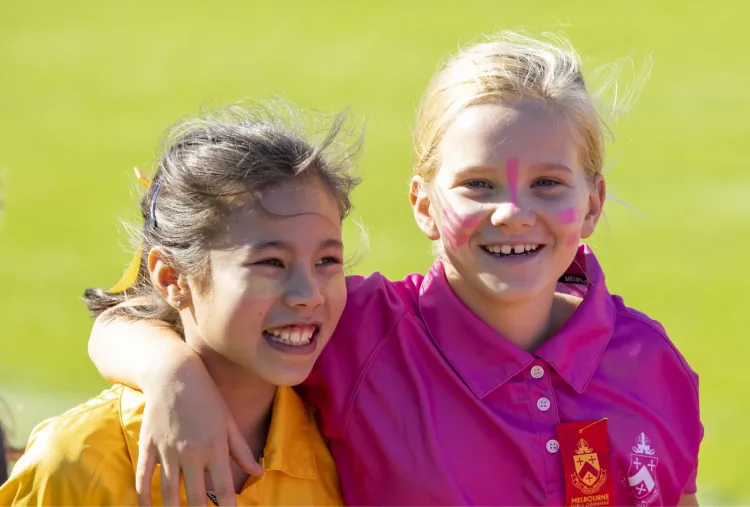
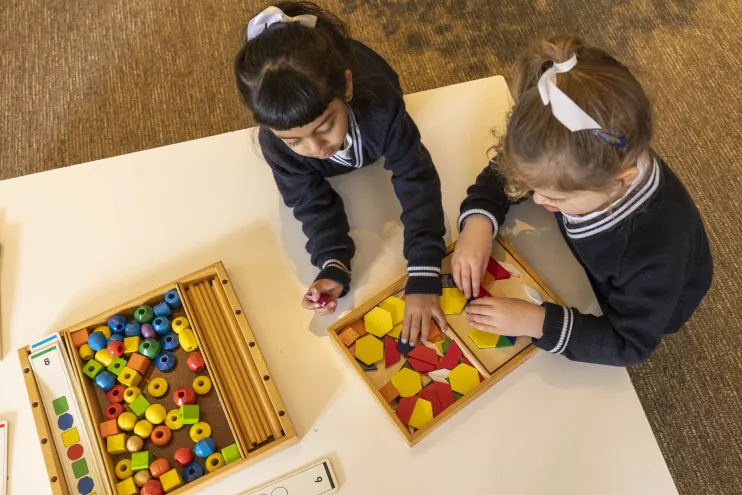
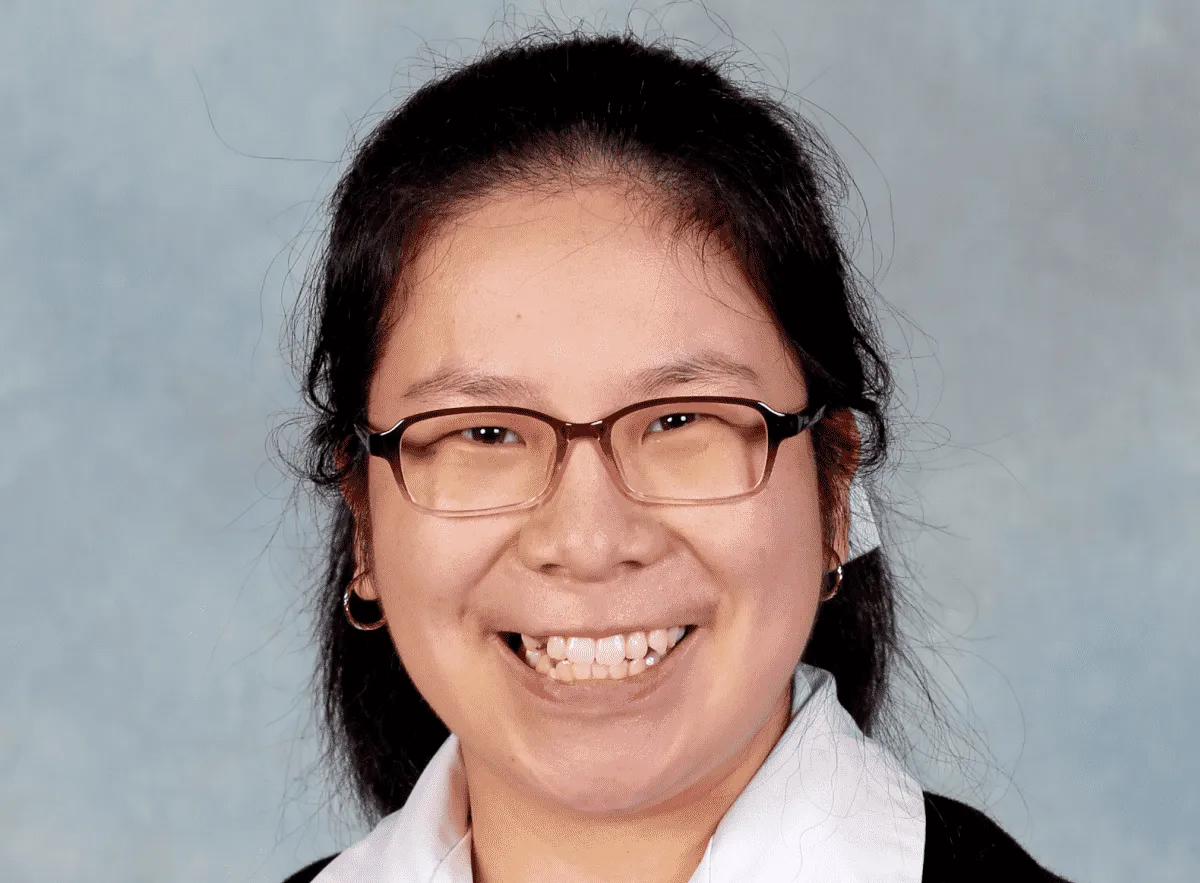
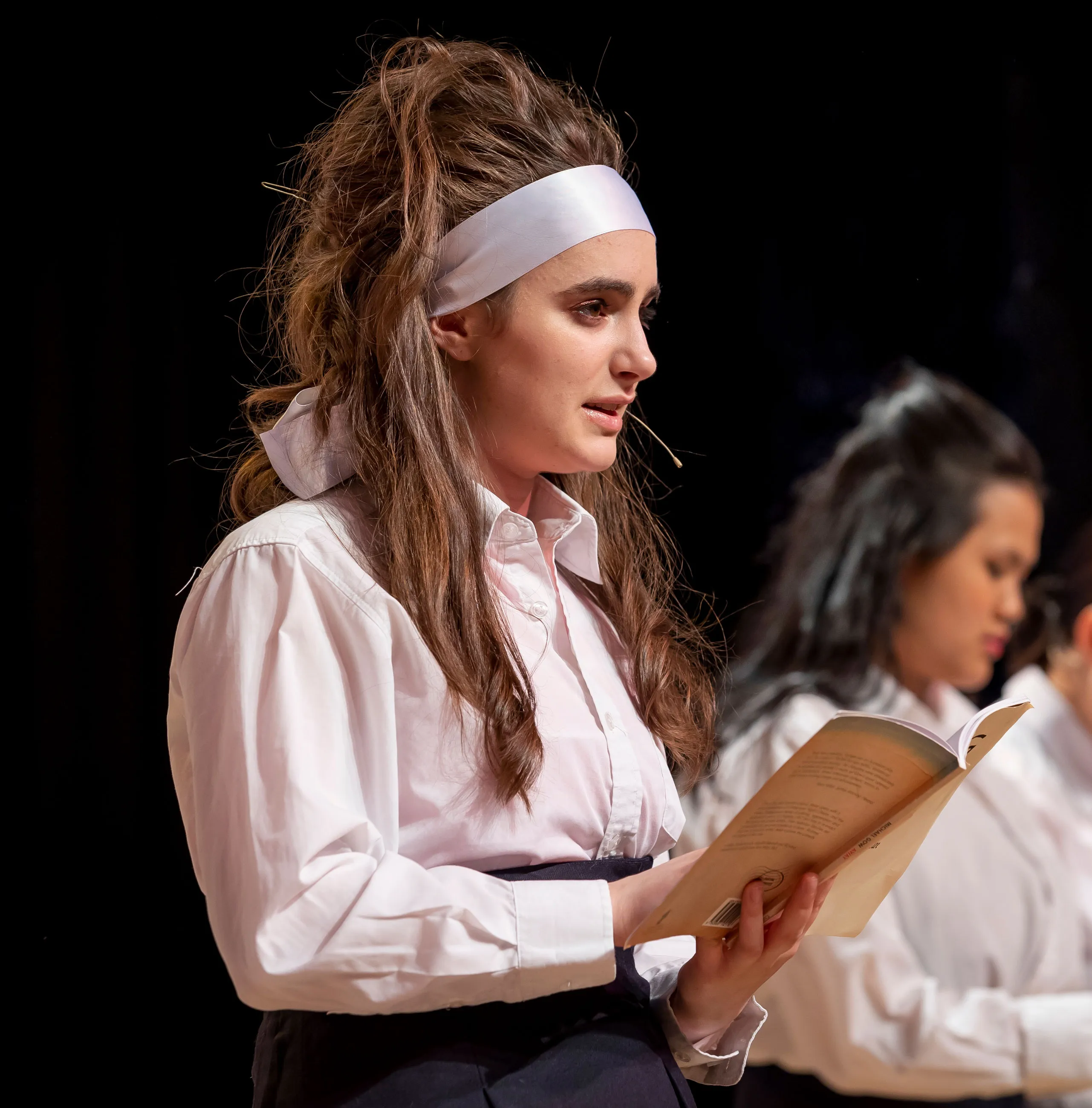
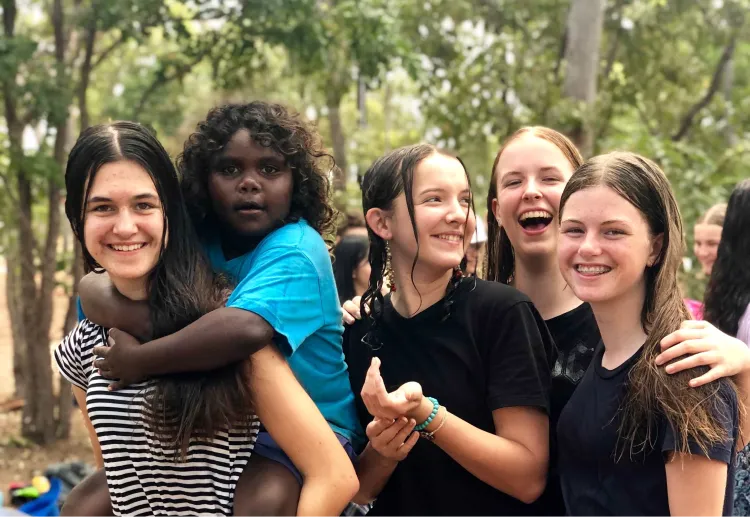
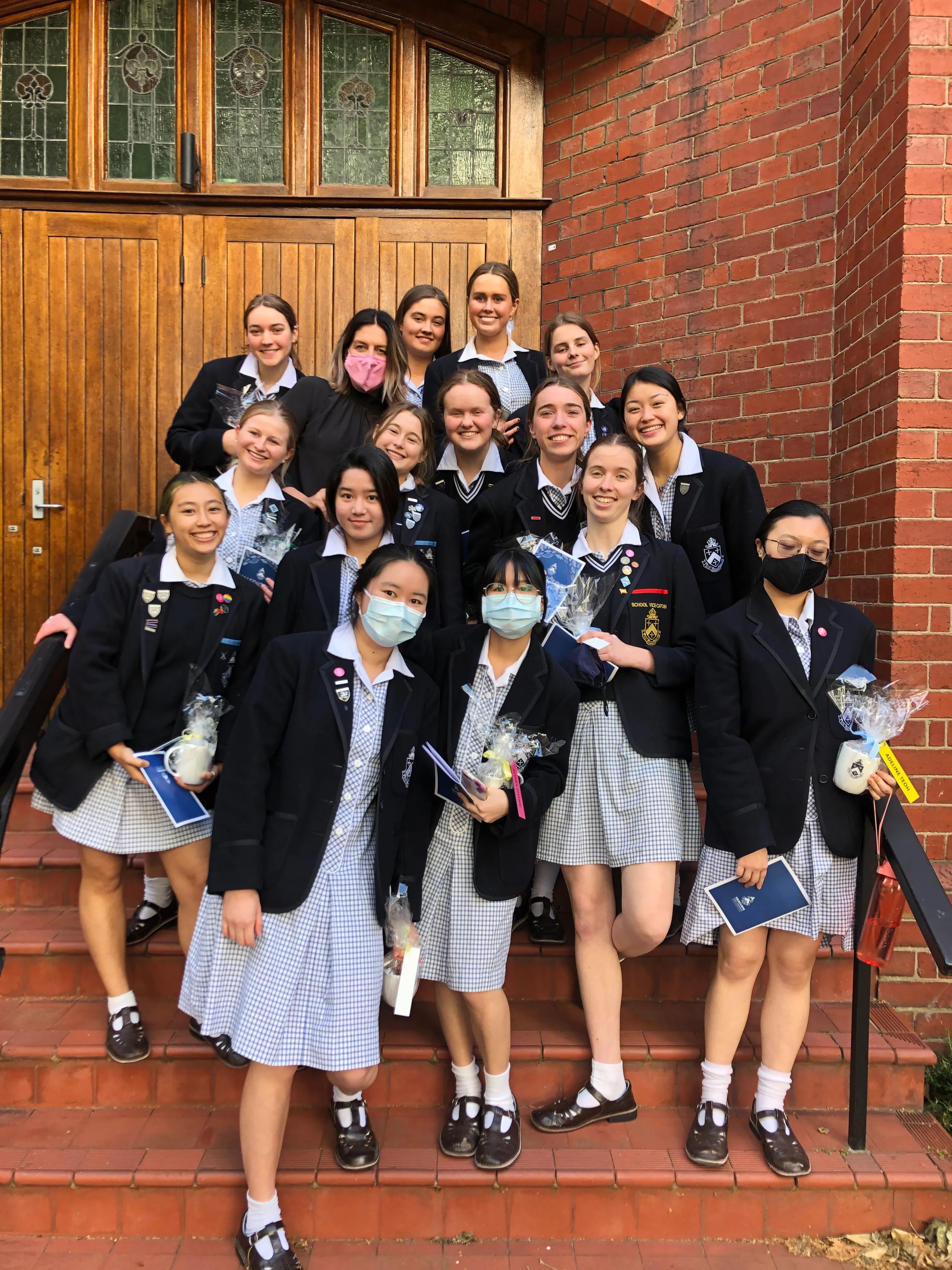

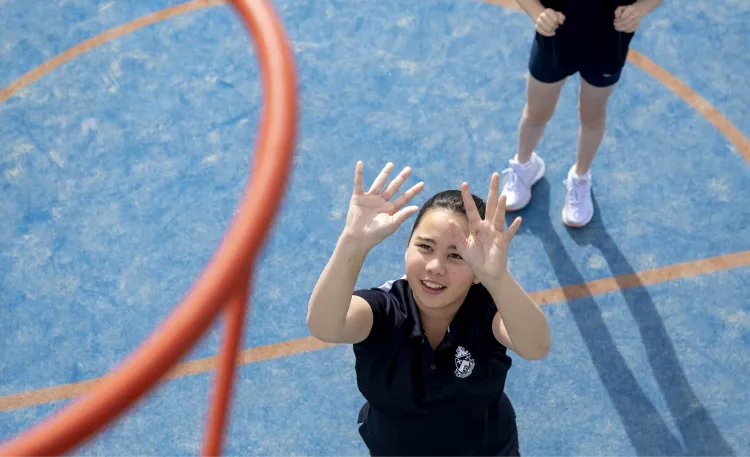
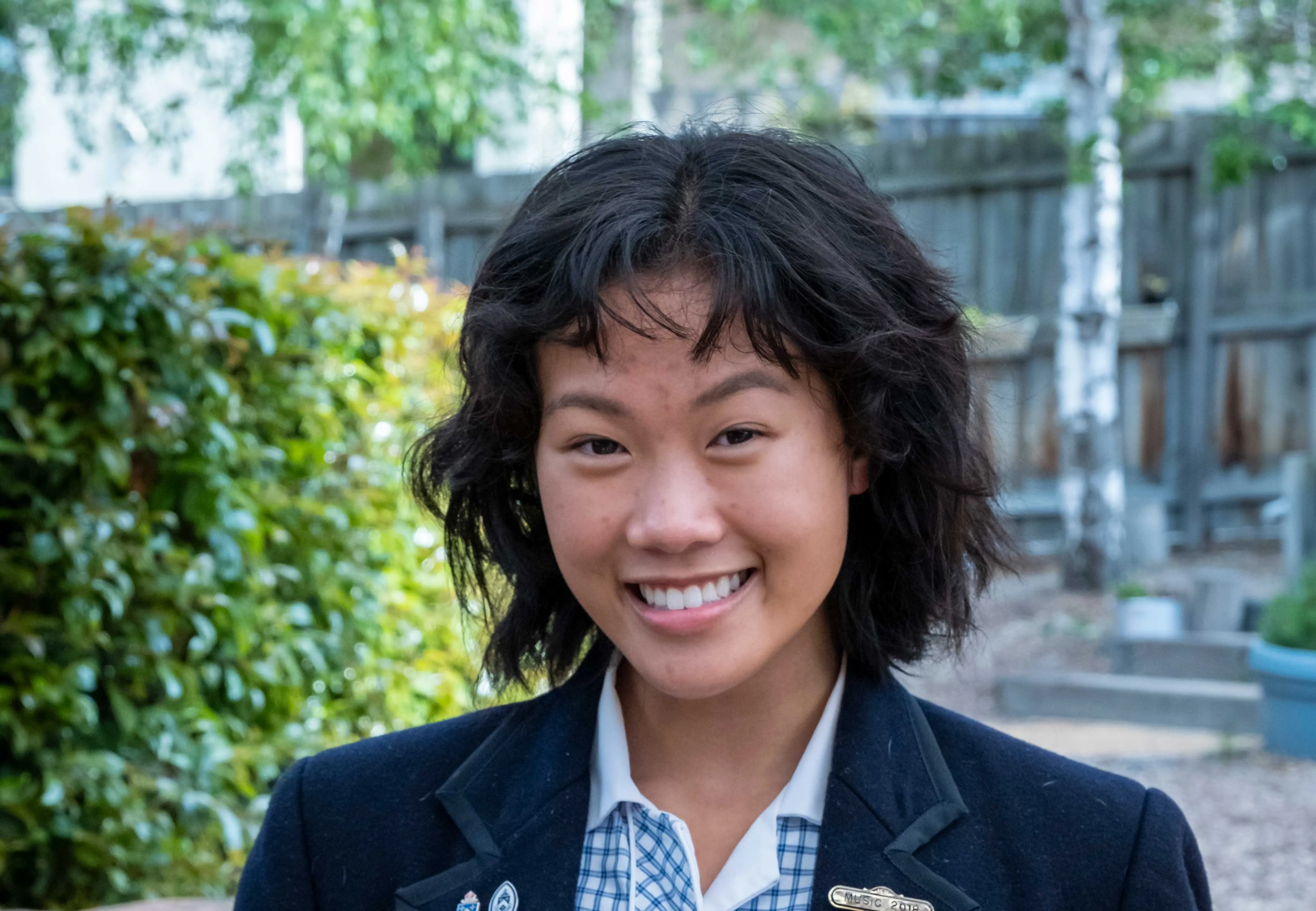
_crop.webp)


